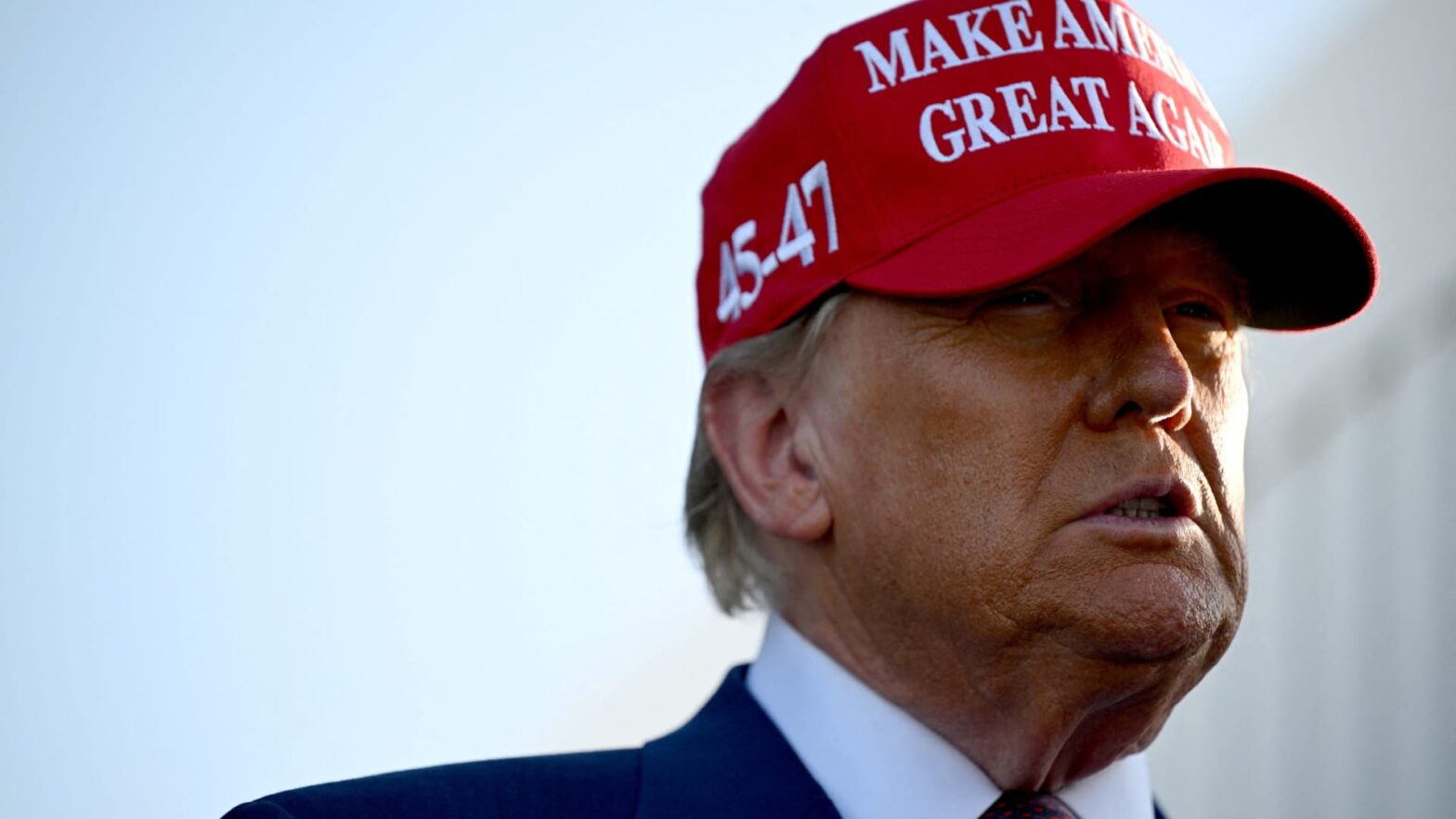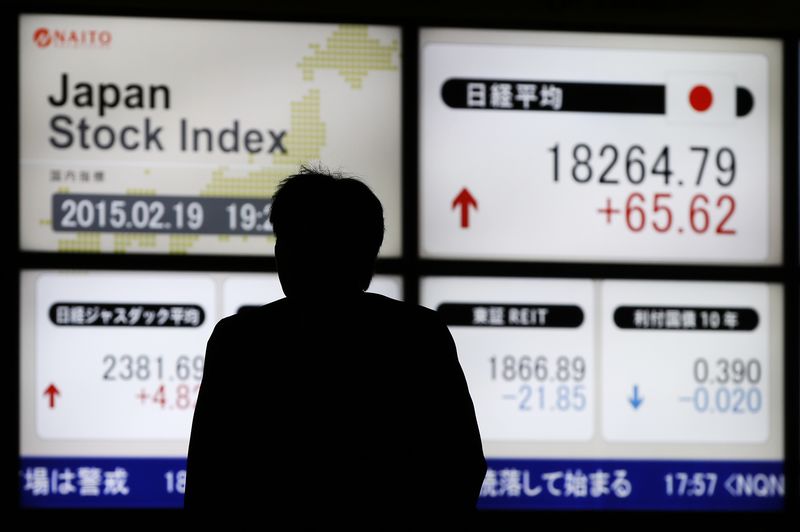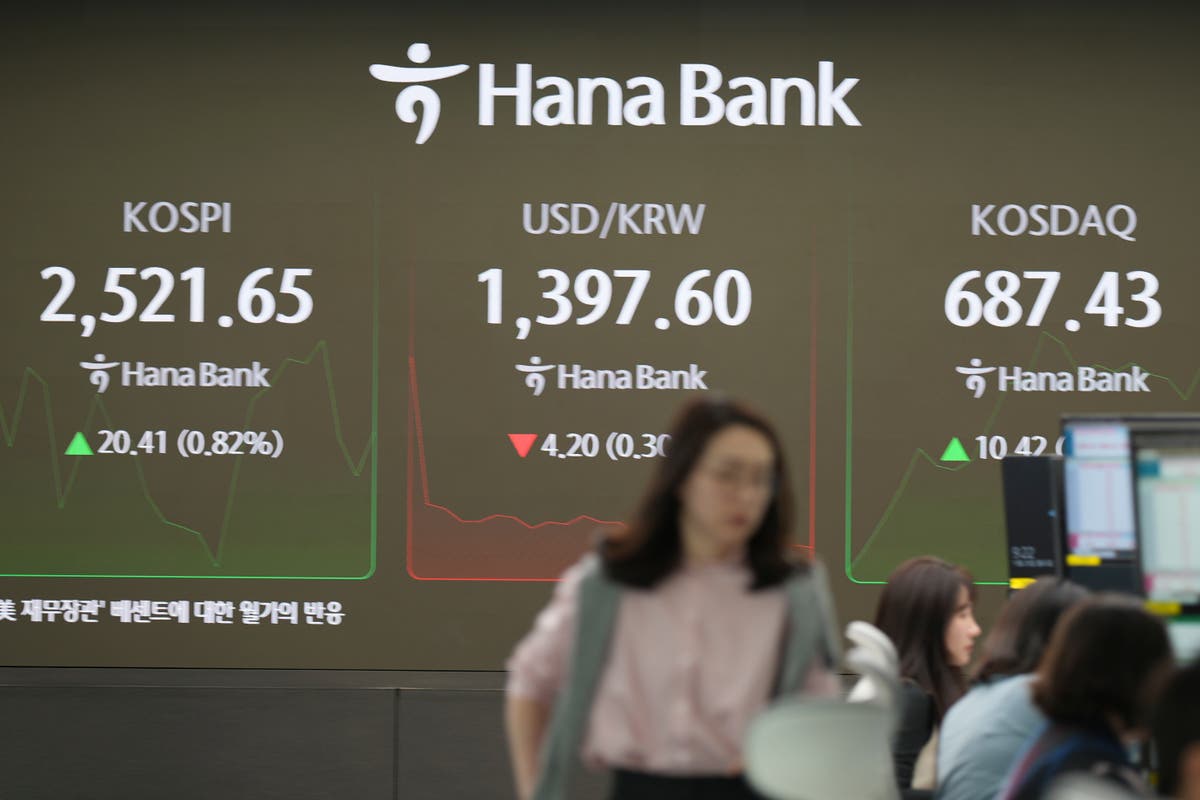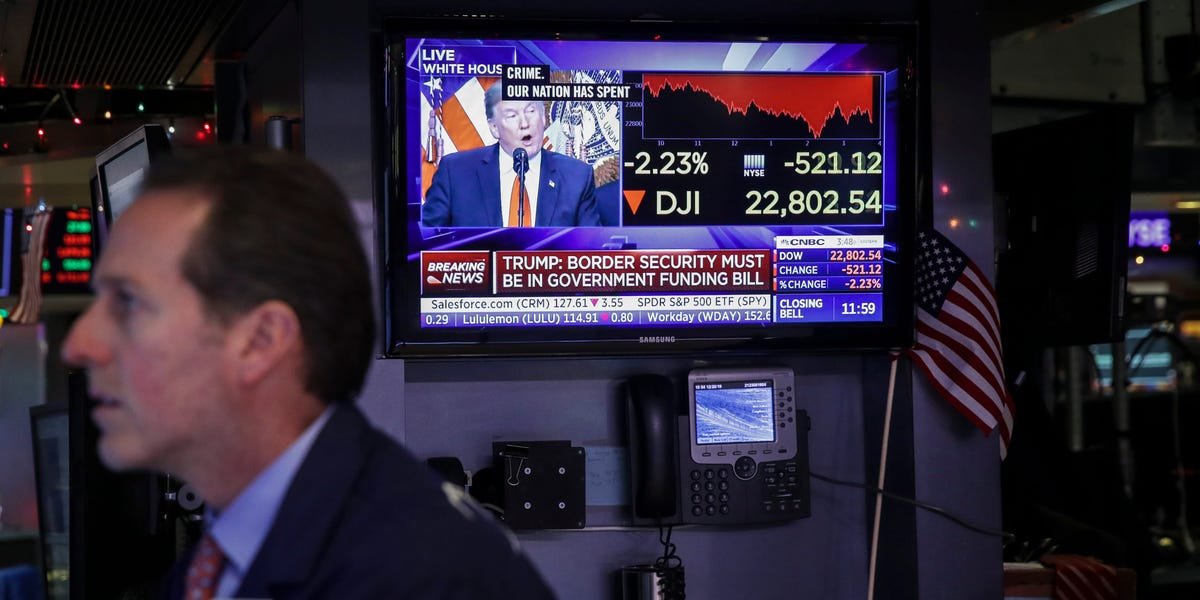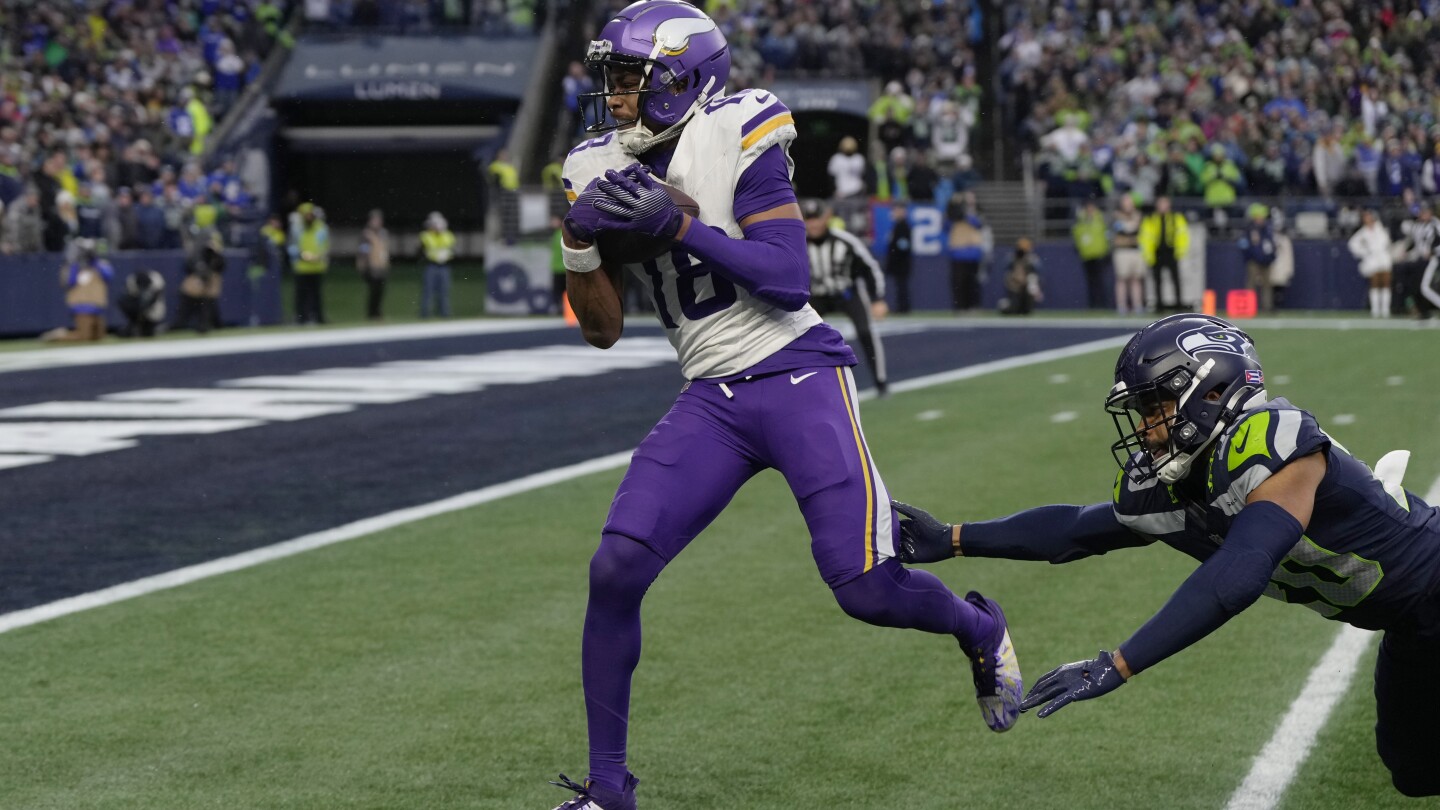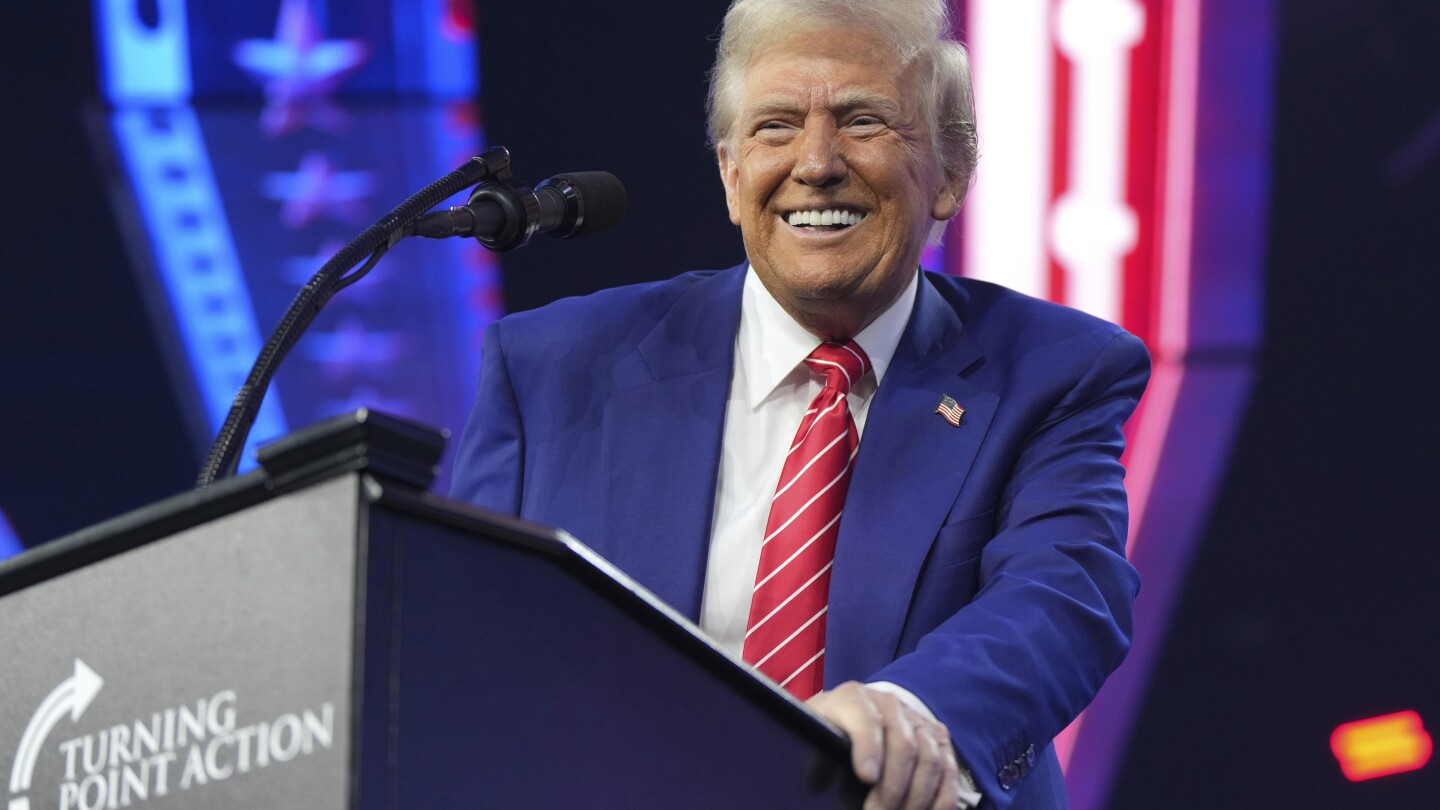European stocks were lower Tuesday as investors assess the implications of U.S. President-elect Donald Trump‘s plans to hike tariffs on China, Mexico and Canada.
The regional Stoxx 600 was down 0.46% at 10:56 a.m. London time as most sectors retreated. Autos led losses, down 1.2% amid fears of a global trade war rocking the industry.
The index had ended in the green for a third straight session on Monday, as global momentum in equities lifted Wall Street’s Dow Jones Industrial Average to a new record.
Trump on Monday evening said one of his first acts in office would be to impose an additional 10% tariff on all Chinese goods entering the U.S., and threatened a 25% tariff on products from Mexico and Canada, ending a regional free trade agreement.
Economists have previously flagged the potential inflationary impact of Trump’s fiscal plan, which could see the Federal Reserve cut interest rates at a slower pace. That in turn could boost the U.S. dollar against currencies such as the euro and sterling.
“Immediate market reaction looks negative,” analysts at Maybank said in a note Tuesday.
“However, these tariffs do differ quite a bit from what Trump had mentioned during his campaign of 60% for China and a 10% broad tariff for the rest of the world. Whilst the market maybe cautious of the risk that Trump maybe incrementally introducing the tariffs, we do note the possibility that the final imposition may not be quite the same as what was proposed by him.”
Europe is quiet on the data and earnings front Tuesday.
Investors will continue to analyze the latest merger and acquisition news from the banking sector, after UniCredit offered to buy its fellow Italian lender Banco BPM for roughly 10 billion euros ($10.5 billion).
In the United States, the Fed will release minutes from its November meeting which delivered a quarter percentage point rate cut.
Banco BPM says UniCredit’s takeover offer does not reflect its profitability
Italy’s Banco BPM said Tuesday that an unexpected 10 billion-euro ($10.52 billion) takeover offer by its domestic rival UniCredit — announced Monday — does not reflect its profitability.
The bid also fails to reflect Banco BPM’s potential for further value creation, the bank’s board of directors said in a statement.
CNBC has reached out to UniCredit for comment.
Banco BPM shares were 0.5% lower in early afternoon deals after closing 5.5% higher Monday. Unicredit extended Monday’s 4.8% decline to trade 0.2% lower.
— Ruxandra Iordache, Jenni Reid
Euro, sterling gain against U.S. dollar
The euro and British pound were both higher against the U.S. dollar at 10:40 a.m. in London, continuing the reaction to President-elect Donald Trump’s latest tariff threats.
Despite the potential introduction of higher tariffs by the U.S. being seen as supportive for the U.S. dollar because of the likelihood that the Federal Reserve will act more cautiously in cutting rates, strategists said any news on the tariff front was likely to rock currency markets.
Euro/USD.
“I think the first reaction here is that investors should get ready for a wild ride in FX volatility,” said Kamakshya Trivedi, head of global foreign exchange, interest rates and emerging markets strategy research at Goldman Sachs.
“Currencies are to some extent the primary means of responding to any sort of tariff announcement,” he told CNBC’s “Street Signs Europe” on Tuesday, adding that it was still unknown whether tariffs would be used as a negotiating tool or a long-term economic strategy, and how much their impact had been priced in.
“It is risky to underestimate the impact on FX” from tariff news, analysts at ING said in a Tuesday note.
“These policies are generally positive for the dollar. Although the final outcome of the tariff threat may be less severe once negotiations are concluded, we recommend adopting a defensive stance in FX markets for the time being.”
— Jenni Reid, Sam Meredith
A lot of Trump tariff fear already priced into equities, strategist says
Market shock from the latest tariff announcements from U.S. President-elect Donald Trump will be limited because much of the impact has been priced in, according to Max Kettner, chief multi-asset strategist at HSBC.
The impact would be dramatic “if we didn’t have anything priced in, if this was a complete surprise,” Kettner told CNBC’s “Squawk Box Europe.“
Instead, in the run-up to the election there was already a lot of analysis on which areas would be affected by various different tariffs, and those baskets have already had a lot of movement, he said.
“I would argue on the equity side, from a relative value perspective, an awful lot is in the price. For example, in Europe, we’ve seen a big, big underperformance of euro zone equities against euro zone credit, which again, speaks in favor of a lot of the worries already in the price in the equity market.”
“We tend to focus a lot on the S&P 500 in its sheer weight in the global equity market now, but when we look a bit more nuanced than the relative value, regionally or from a sector perspective, I would argue an awful lot has already been priced in since the end of September,” he continued.
“So there isn’t an awful lot of basis for saying, you know, the equity market has to tank by 10% because… what the current focus on the-day-to day politics does, it actually keeps sentiment and positioning in check.”
— Jenni Reid
Europe stocks open lower
Stoxx 600 index.
European stock markets opened broadly lower Tuesday, with the benchmark Stoxx 600 index falling 0.63% in early deals.
France’s CAC 40 lost 0.78%, while Germany’s DAX and the U.K.’s FTSE 100 traded down 0.66% and 0.4%, respectively.
— Jenni Reid
Europe stocks set to open lower
Gold plunges 3% as Trump Treasury pick and potential Israel-Hezbollah truce fuel risk-on mood
Gold prices lost about 3% after President-elect Donald Trump picked Scott Bessent as his Treasury secretary, with reports of Israel and Hezbollah nearing a ceasefire deal also eroding the safe-haven metal’s appeal.
Spot prices of the yellow metal dropped 3.44% to $2,616.80 per ounce, according to data from Factset. Gold futures on the New York Mercantile exchange were trading at $2,628.5.
“The ~$100 wipeout in Gold today is as severe in size & pace as the post U.S. election selloff on Nov 6th,” MKS Pamp’s head of metals strategy, Nicky Shiels said.
Read the full story here.
— Lee Ying Shan
Trump vows an additional 10% tariff on China, 25% tariffs on Canada and Mexico
President-elect Donald Trump plans to raise tariffs by an additional 10% on all Chinese goods coming into the U.S., according to a post Monday on his social media platform Truth Social.
The post immediately followed one in which Trump said his first of “many” executive orders on Jan. 20 would impose tariffs of 25% on all products from Mexico and Canada.
Trump is set to be inaugurated as the next U.S. president on Jan. 20.
—Evelyn Cheng
CNBC Pro: Barclays says these global stocks are ripe for share buybacks — and analysts give one 45% upside
European equity markets might look “gloomy” right now, but Barclays noted that one investment strategy has delivered “solid outperformance” over recent months.
“Buyback strategies remain a bright spot for Europe, with strong volumes and returns. Amid a gloomy equity market, our buyback announcement basket (BCEUBUYB) has outperformed by 4.6% since Oct,” the investment bank’s strategists wrote in a Nov. 21 research note.
CNBC Pro subscribers can read more here.
— Amala Balakrishner
Dow and S&P hit all-time highs
Traders work on the floor of the New York Stock Exchange on Nov. 22, 2024 in New York City.
NYSE
The Dow Jones Industrial Average and the S&P 500 both hit all-time highs during Monday morning’s session, as investors rejoiced an improved outlook for equities under Treasury pick Scott Bessent.
The Dow gained more than 1% in early deals while the S&P traded more than 0.4% higher.
Investors predict that Bessent might help mitigate some of Trump’s most extreme protectionist policies, in particular trade tariffs.
— Karen Gilchrist
CNBC Pro: Hedge fund bets on a key oil and gas supply chain stock, expecting 300% upside
Shares of a critical player in the shallow water oil and gas drilling industry, have received renewed backing from a hedge fund, with potential projected returns of 300% to 400%.
The investment case is strengthened by several fundamental market dynamics, including a lack of supply with future demand expected to rise, according to the hedge fund manager.
CNBC Pro subscribers can read more here.
— Ganesh Rao

